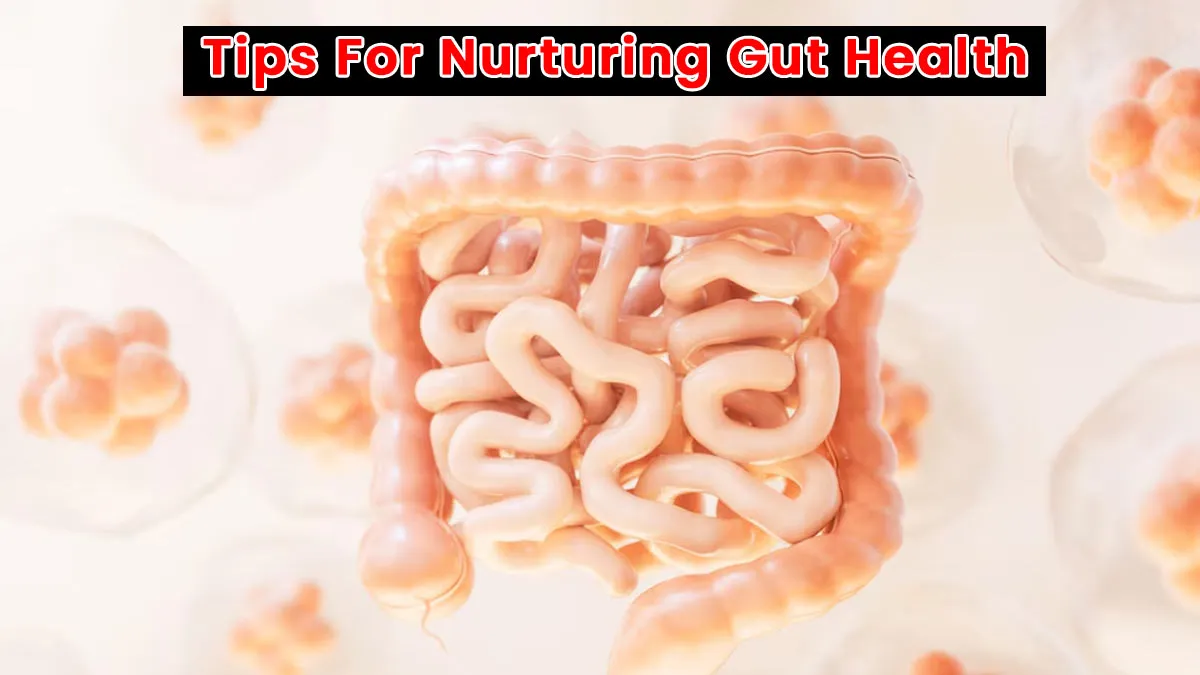
Many people often face acidity issues and these problems can cause discomfort, like heartburn, indigestion, and acid reflux. They can make daily activities harder, disturb sleep, and lower overall well-being. Recent studies show that taking care of our gut microbiome is important. The gut microbiome is a group of tiny organisms living in our digestive system. Keeping it healthy can help manage acidity and improve overall health.
Table of Content:-
Regarding the same, Dr Umesh Wadhavani, a nutritionist and founder of Simply Wellness India, Mumbai shared some tips on how to support gut health. He highlighted the benefits of adding probiotics and prebiotics to your diet. These can help relieve acidity issues and promote better gut health.
Tips to Improve Gut Health
Our gut health can get out of balance because of bad eating habits and unhealthy choices. So, how can we make our gut health better? Dr Umesh Wadhavani, a nutritionist and founder of Simply Wellness India, Mumbai shared a few tips to improve acidity issues.
- Stop Harmful Behaviours: The first step to improving gut health is to eliminate habits that negatively impact it.
- Nurture with Prebiotics and Probiotics: Focus on incorporating two key elements into your diet: prebiotics and probiotics.
- Understand Probiotics: They are foods rich in beneficial bacteria that help restore balance in your gut, especially after years of unhealthy eating.
- Include Probiotic Foods: Simple sources like yoghurt and buttermilk can easily be added to your meals, but it's important to make them a regular part of your diet.
- Support Gut Health: Consuming probiotics regularly can enhance your gut microbiome, leading to better digestion and overall well-being.
“If your gut health has suffered from years of eating junk food and neglecting nutritious options, it's time to restore balance. This means incorporating more good bacteria into your diet,” added the expert.
ALSO READ: What Deficiency Causes Hypnic Jerks? Expert Share Tips To Manage Hypnic Jerks
What Is the Importance of Gut Health?
Gut health is very important for our overall well-being. According to WebMD, it refers to the balance and function of tiny living organisms in your digestive system, known as the gut microbiome. This microbiome consists of trillions of bacteria, fungi, and other microbes that help with digestion, nutrient absorption, and even the production of hormones and brain chemicals. When your gut is healthy and balanced, it has a positive impact on both your physical and mental health.
Role of Probiotics and Prebiotics in Gut Health
These two are key elements when it comes to maintaining gut health. Each serves a unique role in supporting digestion and overall well-being. Probiotics are live good bacteria that are found in a few foods and supplements. They help bring back the natural balance of bacteria in your gut, which can get upset by a bad diet, sickness, or antibiotics. Eating probiotics can improve digestion, lessen diarrhoea, boost your immune system, and even help with mental health. Common sources of probiotics include fermented foods like yoghurt, kefir, sauerkraut, and kimchi.
Prebiotics, on the other hand, are types of fibre that your body can't digest, but they act as food for probiotics. They help healthy gut bacteria grow and keep your microbiome balanced. Prebiotics can improve digestion, help your body absorb calcium better, regulate blood sugar levels, and reduce inflammation. You can find prebiotics in foods like fruits, vegetables, whole grains, garlic, onions, asparagus, and legumes. Including both probiotics and prebiotics in your diet is important for promoting a healthier gut and enhancing your overall health.
ALSO READ: Cold Weather and Cigarettes: Heightened Risks for Heart Disease and Impaired Lung Health
Conclusion
Using probiotics and prebiotics is an effective way to improve gut health and manage acidity issues. By adding these beneficial foods to your diet, you can create a balanced gut microbiome, which helps reduce acidity symptoms and enhance overall health. Regular consumption is key for maintaining digestive health and improving your quality of life. However, it's always advised to consult a dietitian before making significant dietary changes.
Also watch this video
How we keep this article up to date:
We work with experts and keep a close eye on the latest in health and wellness. Whenever there is a new research or helpful information, we update our articles with accurate and useful advice.
Current Version